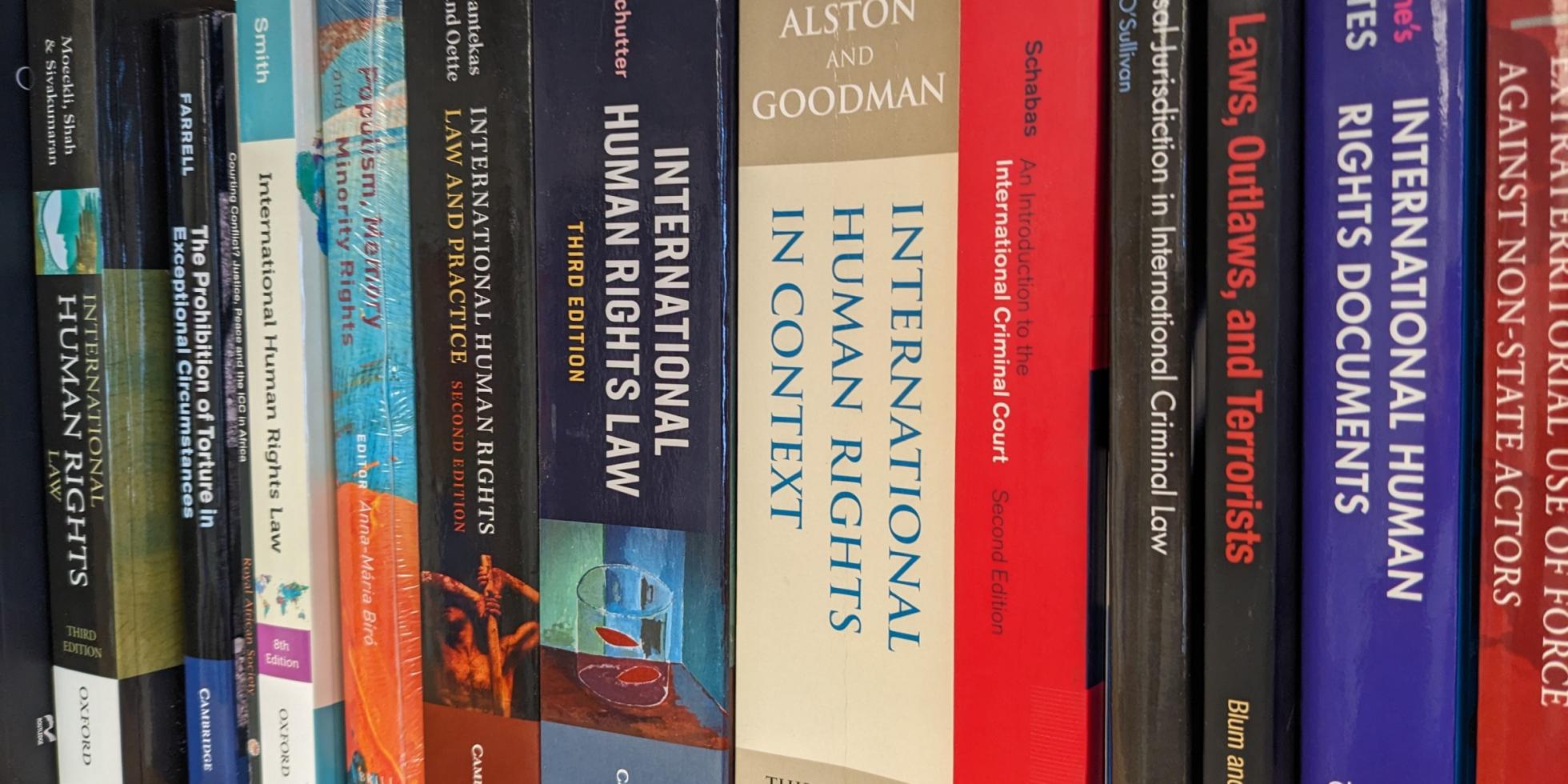The virtual human rights library brings together resources from multiple libraries and information services, both internal and external, to create an online hub dedicated to the study of human rights. This curation is unique in its interdisciplinary concerns and focuses on writings and research from social sciences, humanities, and law.
The virtual library is continually updated with the latest academic research in issue areas, as well as with relevant films, recorded conversations, and other forms of media.
Please Note:
The Virtual Library is usable by all visitors, but the hyperlinks to materials listed are for UChicago community members with a CNet ID and password.
Please direct feedback and suggestions to Kathleen Cavanaugh.
For technical assistance, email pozenhumanrights @ uchicago.edu.
Searchable Database
Click into the dropdowns to select the disciplines, keywords, and media type for your search, and then hit "Apply."
Rights as Weapons: Instruments of Conflict, Tools of Power
Rights are usually viewed as defensive concepts representing mankind’s highest aspirations to protect the vulnerable and uplift the downtrodden. But since the Enlightenment, political combatants have also used rights belligerently, to batter despised communities, demolish existing institutions, and smash opposing...
Rights in Rebellion: Indigenous Struggle and Human Rights in Chiapas
Rights in Rebellion examines the global discourse of human rights and its influence on the local culture, identity, and forms of resistance. Through a multi-sited ethnography of various groups in the indigenous communities of Chiapas, Mexico—from paramilitaries to a Zapatista...
Rights make might: Global human rights and minority social movements in Japan
Rights Make Might examines why the three most salient minority groups in Japan all expanded their activism since the late 1970s against significant headwinds, and chronicles how global human rights ideas and institutions empowered all three groups to engage in...
Rights: Sociological Perspectives
This pioneering book demonstrates how different traditions of sociological thought can contribute to an understanding of the theory and practice of rights. It provides a sociological treatment of a wide range of substantive issues but never loses sight of the...
Romancing the Shadow: Poe and Race
Edgar Allan Poe's strength as a writer lay in fabricating fantisies in settings far removed from his own place and time. This dislocation renders the attitudes embedded in his fiction open to interpretation, and over the years some readers have...
Romani Movement: Minority Politics and Ethnic Mobilization in Contemporary Central Europe
The collapse of communism and the process of state building that ensued in the 1990s have highlighted the existence of significant minorities in many European states, particularly in Central Europe. In this context, the growing plight of Europe's biggest minority...
Rue Ordener, Rue Labat
French philosopher, Sarah Kofman only inherited one object from her father, Rabbi Bereck Kofman, who was murdered in Auschwitz in 1943. This pen “obliges me to write” her experiences in the Holocaust. Kofman describes the events of July 16-17, 1942...
Rule of Experts: Egypt, Techno-Politics, Modernity
The chapter “Can the Mosquito Speak?” is of particular interest.
Can one explain the power of global capitalism without attributing to capital a logic and coherence it does not have? Can one account for the powers of techno-science in terms that...
Rules for the World: International Organizations in Global Politics
Rules for the World provides an innovative perspective on the behavior of international organizations and their effects on global politics. Arguing against the conventional wisdom that these bodies are little more than instruments of states, Michael Barnett and Martha Finnemore...
Sacred Cows and Chicken Manchurian: The Everyday Politics of Eating Meat in India
Bovine politics exposes fault lines within contemporary Indian society, where eating beef is simultaneously a violation of sacred taboos, an expression of marginalized identities, and a route to cosmopolitan sophistication. The recent rise of Hindu nationalism has further polarized traditional...

